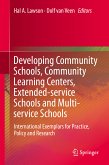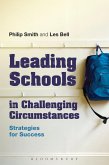The extended schools agenda is high profile and yet is very difficult for schools to fulfil. Schools are understandably focused upon the standards agenda. Implementing the Government's wishes to make schools available to parents from 8 am to 6pm 48 weeks a year can be seen as an additional burden. Even where an extended schools coordinator has been appointed they can be 'shared' between so many schools that it makes it difficult to meet the needs of all the schools involved. A patchwork of provision means that there is still great confusion and lack of direction in terms of delivery.
This publication looks at the issue of extended schools from a down-to-earth point of view. It understands the difficulties that schools face and the practical implications of what they're being asked to do. It aims to help school staff by providing a bank of resources and ideas which they can select from in order to make the job of delivering extended provision more manageable. It provides ideas and templates for each of the core offers and considers some of the health and safety issues involved. It provides practical assistance in applying for funding, publicising provision and working with other services. In summary, the book will help schools: - develop understanding of where the concept came from and what extended provision actually means - audit current provision and establish what to do next - find the capacity to develop their provision - utilise the experiences, facilities and resources provided by local services, voluntary groups, clubs and associations - develop the core offer of extended activities - develop the role of the extended schools coordinator - find ways of funding the role - evaluate the effectiveness of provision.
This publication looks at the issue of extended schools from a down-to-earth point of view. It understands the difficulties that schools face and the practical implications of what they're being asked to do. It aims to help school staff by providing a bank of resources and ideas which they can select from in order to make the job of delivering extended provision more manageable. It provides ideas and templates for each of the core offers and considers some of the health and safety issues involved. It provides practical assistance in applying for funding, publicising provision and working with other services. In summary, the book will help schools: - develop understanding of where the concept came from and what extended provision actually means - audit current provision and establish what to do next - find the capacity to develop their provision - utilise the experiences, facilities and resources provided by local services, voluntary groups, clubs and associations - develop the core offer of extended activities - develop the role of the extended schools coordinator - find ways of funding the role - evaluate the effectiveness of provision.









